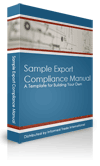What is a Technical Assistance Agreement (TAA)?
Not too long ago, I helped to develop a compliance program for a well know defense contractor who’s business was the US sale of communications systems for commercial and military aircraft. Their primary issue was not licensing for the export of their products, but rather that their sales and marketing departments were in the US while their research and development facilities were in the UK.
Essentially every email, phone call, and fax related to their product or the customer’s requirements was subject to the export licensing requirements of technical data!
When I talked to the CEO of the company, he looked me dead in the eye and said “If we have to wait 60 days before we can send an email to [overseas R&D partner], we’ll have to shut down.”
Fortunately for us, there’s a procedure designed just for this purpose called a Technical Assistance Agreement or TAA. With a Technical Assistance Agreement, you’re not applying for a license to export of X number of physical products to another country. Instead, you can apply for permission to discuss and share regulated technical data with an overseas contact. Generally, a TAA would address these three issues:
- Who do you want to send technical data to?
- Why do you want to send it?
- What type of information will you be sharing?
Properly written, a Technical Assistance Agreement can exempt the communication of technical data to an overseas partner. They’re harder and take longer for approval from the DoS, but once they’ve been approved are more flexible than licensing.
A description of a Technical Assistance Agreement from Part 120 of the ITAR:
§ 120.22 Technical assistance agreement.
An agreement (e.g., contract) for the performance of a defense service(s) or the disclosure of technical data, as opposed to an agreement granting a right or license to manufacture defense articles. Assembly of defense articles is included under this section, provided production rights or manufacturing knowhow are not conveyed. Should such rights be transferred, § 120.21 is applicable. (See part 124 of this subchapter).
You can read more about Technical Assistance Agreements in part 124 of the ITAR.
As always, if you’re developing a compliance program that includes Technical Assistance Agreements, please consider our Sample Export Compliance Manual as a template for your own program!
Posted on May 22nd, 2008 by keeton
Filed under: ITAR


I am considering the implications and feasibility of ITAR application, but my current research indicates this will be quite the process, and may not be feasible. Is there a site or reference I could be pointed to that would provide a good overview of what will be involved and the cost thereto ? This is from an Ontario, Canada start-up company perspective.
What are the concerns and requirements when a foreign customer (from Italy) requires a plant visit?
How do you handle a foreign contract having a “free access to facilities” clause?
The Department of State is the governing authority for ITAR products. The US Government tends to re-organize their web sites regularly, so just do a search for “US Department of State”.
We are working on a sensitive project in Asia for which the vendors need to acquire a TAA from the US Department of State. This may sound paranoid, but is there any way of verifying that a TAA is authentic? Is there any way of catching a forgery before we close the deal with the vendor?
We are importing items back to the USA under DSP-73 but when we notate the ITAR clause 123.4a1. I think we used the wrong ITAR clause now. that I see it. What should we use on this
I would like to know what the period of performance for a TAA is and if it can be amended to extend the PoP.
Thank you.
Gabriela